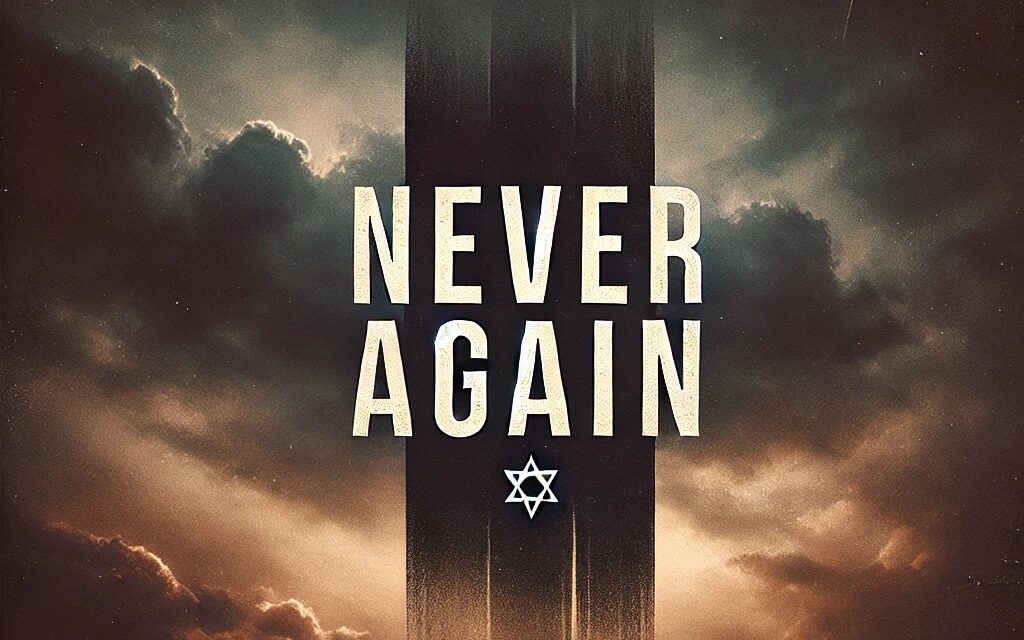January 27 is recognized by the United Nations General Assembly as International Holocaust Remembrance Day, which commemorates the six million Jews and millions of innocent victims persecuted by the Nazis during the Holocaust.
As we engage in ongoing discussions about the origins and evolution of the Holocaust, this year has offered critical insights into the devastating impact of hate and discrimination and their long-term effects.
Holocaust Denial: Cause for Concern
Holocaust denial, a form of antisemitism, seeks to negate or minimize the facts of the Nazi genocide against the Jewish people. This dangerous trend is an affront to the memory of millions of victims and a gateway to potential future atrocities. In our digital age, the rapid spread of misinformation and denial, especially on social media platforms, is deeply troubling.
As antisemitism rises worldwide, this day gains even more significance, urging us to deeply engage with the lessons learned from the Holocaust. This year, as we honor the memory of over six million Jewish victims, the urgency of our commitment to remembrance, education, and recognition becomes ever more crucial. With the number of survivors who can share their firsthand experiences dwindling, it falls upon us to ensure their stories, their pain, and their resilience are never forgotten. It is our obligation to carry forward their legacy, ensuring their sufferings and sacrifices are imprinted in our collective consciousness.
In a time marked by historical distortion, the rise of Holocaust denial and the minimization of Jewish persecution throughout history are particularly concerning. This is more than a matter of historical accuracy; it’s a vital step in preventing the recurrence of past atrocities.
The Attempt to Change the Holocaust Narrative
This week, six days before International Holocaust Remembrance Day the Russian government released a statement accusing Germany of aligning itself with Nazism. Among other allegations, the statement accuses Germany of blindly supporting Israel and engaging in “neo-Nazi practices” in Ukraine. The statement blatantly manipulates historical truths about the Holocaust by asserting that it should not be seen solely as a Jewish tragedy, but as a genocide that involved multiple nationalities and ethnic minorities across Europe.
It is a documented fact that, besides the estimated 6 million Jewish lives lost, between 5 and 12 million others were killed during the war years. Wikipedia’s statistics for the larger groups affected are approximately as follows:
- 2 million ethnic Poles
- 4.5 million Soviet citizens
- 3.3 million Soviet POWs
- 200,000 Romani (Gypsies)
- 200,000 disabled and mentally ill Germans
- 5,000 – 15,000 homosexuals
- Others: 300,000
Nazi racial ideology ranked all non-Aryan populations as inferior. Slavs, Poles, and Russians were considered near the bottom of this hierarchy, and Scandinavians near the top, with the rest of the Europeans falling in between. The Romani, a historically landless and defenseless population, were relegated to a status similar to Jews, considered subhuman. Mentally ill and homosexual Germans were targeted as defective individuals who threatened the purity and future of the perceived superior Aryan race. Non-Jews suffered in the gas chambers, endured torture, starvation, and shootings alongside Jewish victims in vast numbers, clearly targeted by the Nazi regime’s genocidal agenda.
Acknowledging the uniquely targeted persecution of Jews during the Holocaust does not diminish the suffering of other groups . Jews were uniquely targeted for total destruction. The Jews were specifically targeted in Germany, beginning with the ideological doctrines set forth in Mein Kampf and followed by the anti-Jewish laws of the 1930s.
The Importance of Monitoring Holocaust Denial on Social Media
In combating Holocaust denial, social media monitoring has emerged as a key defense strategy. Organizations like Fighting Online Antisemitism (FOA) are crucial in this battle. FOA’s efforts in monitoring and reporting antisemitic content across platforms demonstrate the significance of vigilance in the digital realm. Through education, involvement in legislative processes, training volunteers and developing AI systems for content analysis, FOA exemplifies the innovative approaches necessary to combat cyberhate and misinformation.
Legal Amendments for Protection
Addressing Holocaust denial and historical distortions requires more than social media monitoring and NGO efforts. Legal amendments are urgently needed to tackle the spread of such harmful content. Laws must evolve to hold accountable the platforms hosting this content. The adoption of frameworks like the International Holocaust Remembrance Alliance’s (IHRA) Working Definition of Antisemitism by cities and organizations globally is a positive step, offering a clear guide to identify and combat antisemitism.
In our work, FOA is guided by the International Holocaust Remembrance Alliance’s (IHRA) definition of antisemitism, and we actively encourage organizations and municipalities to adopt this definition. It is also important to emphasize the correct use of the term ‘antisemitism.’ The word should be used as a single, unhyphenated word, in line with IHRA’s rationale: using ‘antisemitism’ as one word avoids implying the existence of something called ‘Semitism’ “…which not only legitimizes a form of pseudo-scientific racial classification that was thoroughly discredited by association with Nazi ideology, but also divides the term, stripping it from its meaning of opposition and hatred toward Jews”. Additionally, hyphenating the term loses its specific meaning, which is hatred and opposition to Jews. It does make a difference.
Our actions today will significantly influence how future generations remember one of humanity’s darkest periods. As a community, we must unite to preserve the truth, educate the uninformed, and ensure the horrors of the past are never forgotten or repeated. Echoing George Santayana’s words, “Those who cannot remember the past are condemned to repeat it.” (Santayana, 2011)

